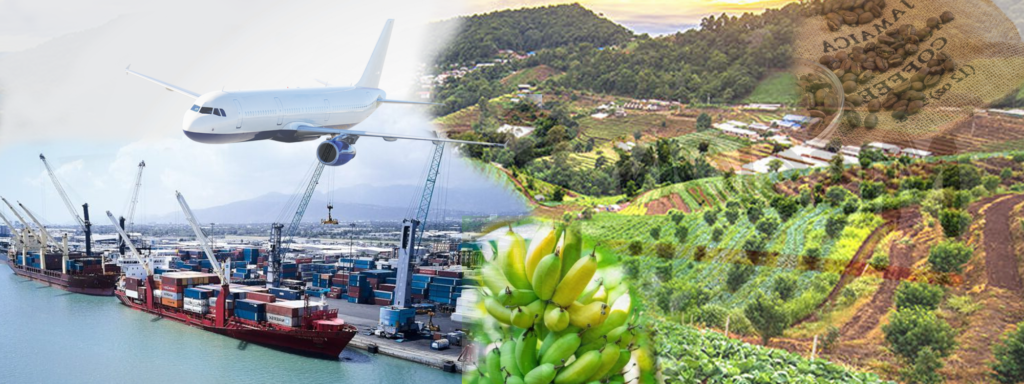
Trade has always played a major role in the Jamaican economy, with the value of exports and imports totalling over 50 percent of GDP. Exports are broken down into two categories: traditional and non-traditional. Traditional exports are in the areas of agriculture, mining and manufacturing and include: bananas, citrus, coffee, cocoa and pimento; bauxite, alumina and gypsum; as well as sugar, rum and products made from citrus, coffee and cocoa.
Non-traditional exports include food products such as cucumbers, pumpkins, dasheens, sweet potatoes, yams, mangoes, papayas, ackee, and fish. Other important non-traditional exports are beverages and tobacco, cut flowers, limestone, chemicals, apparel, furniture and light manufactured goods.
Jamaica’s main export partners are the USA, Canada, UK, Norway, countries of the Caribbean Community (CARICOM), Japan and countries of the European Union (EU).
Jamaica’s main imports are food and other consumer goods, industrial supplies, fuel, parts and accessories of capital goods, machinery and transport equipment and construction materials. The main import partners are the USA, CARICOM, Germany, Venezuela, France and Japan.
Jamaica is one of the world’s leading exporters of bauxite and alumina. Jamaica is also considered as the home of the world’s finest rums, coffee and pimento. However, there is usually a balance of trade deficit equivalent to about 20% of GDP.